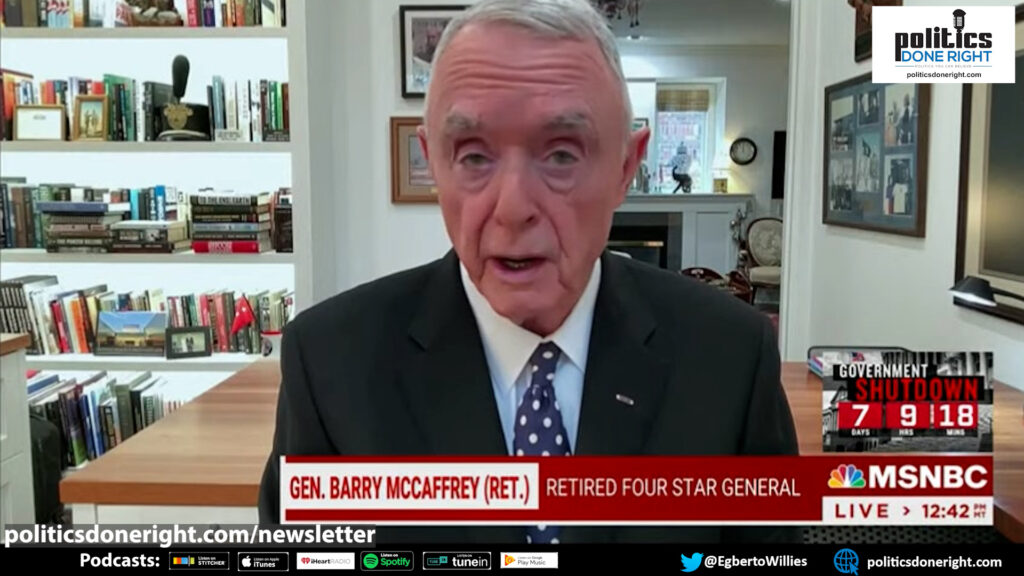Media bias is real. After watching this interview, it is clear that since the Palestinian death tolls are rising, there is no interest from the U.S. to reign in Israel’s massacre.
Media bias in reporting clearly exposed.
In the ongoing discourse surrounding the Israel-Hamas-Palestine conflict, a significant facet often overlooked is the role of media in shaping public perception and understanding of the crisis. The essence of media bias, particularly in conflict reporting, is not just a matter of skewed representation; it’s a complex interplay of historical context, political dynamics, and the humanization or dehumanization of the parties involved. Analyzing a recent interview on MSNBC highlights these aspects and provides an insightful lens into the intricacies of media portrayal in this longstanding conflict.
Firstly, the interview underscores the disproportionate coverage and casualty figures in the conflict. The media often reports on the Israel-Hamas-Palestine conflict in terms of numbers and statistics, which, while factual, can obscure the human suffering behind these figures. This statistical approach, although appearing objective, can inadvertently create a narrative imbalance. For instance, the transcript mentions the significant number of Palestinian casualties, including a staggering number of children, contrasted with a relatively smaller number of Israeli casualties. Such disproportionate figures are not just numbers; they represent lives lost, families shattered, and communities destroyed. The media’s focus on casualty numbers, devoid of context or empathy, can lead to a desensitization of the audience to the scale of human tragedy occurring in Gaza.
The analytical approach of the media towards the conflict is another critical aspect discussed in the interview. The media’s detached, clinical manner in reporting on the conflict lacks empathy and do not fully convey the scale of human suffering in Gaza. This antiseptic style of reporting can diminish the audience’s ability to empathize with those affected by the conflict. Moreover, the reduction of complex geopolitical and humanitarian crises to mere talking points or sensational headlines can lead to an oversimplified understanding of the issues at hand, further skewing public perception.
There are many international and domestic political dynamics that influence the conflict. It highlights the roles of various international figures, such as U.S. Secretary of State Blinken and President Biden, suggesting their responses are influenced by diplomatic strategies and domestic political considerations. The actions and statements of these figures are not just independent decisions but are deeply intertwined with their nations’ foreign policies and domestic political landscapes. In the context of the United States, support for Israel has been a longstanding policy, influenced by a complex web of historical, political, and strategic factors. The media’s portrayal of these political dynamics can either illuminate or obscure the underlying motivations and consequences of these policies. But one would expect them to delve more deeply not only for deeper understanding by the public but the prevention of conspiracy theories and more. How does the area’s oil reserves or the possible resurrection of the Ben Gurion Canal play as excuse to overplay the terrorist act?
Furthermore, the historical context of the Israel-Hamas-Palestine conflict is essential to understanding the current situation. The interview provides a historical overview, dating back to 1948, highlighting the complexity of the situation, including the longstanding territorial disputes and the stated goals of groups like Hamas. This historical perspective is crucial for an informed understanding of the conflict. The media’s role in providing this context is vital; without it, current events can seem isolated incidents, detached from their historical roots. Understanding the history of the conflict allows for a more nuanced view of the current situation, recognizing the grievances and motivations of both sides.
Finally, the interview calls for a more comprehensive solution, recognizing the humanity and rights of all parties involved in the conflict. It suggests that a more equitable approach, acknowledging the historical and ongoing grievances of both Israelis and Palestinians, is necessary for a lasting resolution. This call for humanity goes beyond political and strategic considerations, urging a recognition of the fundamental human rights and dignity of every individual affected by the conflict.
The media, in this context, plays a critical role. How the conflict is reported can influence public opinion, policy decisions, and international relations. Balanced and empathetic reporting can foster understanding and dialogue, while biased or dehumanized portrayals can fuel division and misunderstanding. The responsibility of the media, therefore, is not just to report events but to do so in a manner that respects the complexity and humanity of the situation.
The Israel-Hamas-Palestine conflict is a multifaceted issue, encompassing historical grievances, political dynamics, human suffering, and media portrayal. The interview provides a critical insight into how media bias, whether intentional or not, can shape public perception of the conflict. It highlights the need for balanced, empathetic, and contextually rich reporting that acknowledges the human cost of the conflict and the historical complexities that underpin it. As consumers of media, it is also incumbent upon us to seek out diverse perspectives and understand the broader context, enabling a more informed and empathetic understanding of this enduring conflict.
We work extremely hard to research and seed the internet with truthful, fact-based information to counter the misinformation from the Right and others who would have us vote against our interests. Corporations and billionaires ensure the Right-Wing & MAGA are well funded. We have you, our grassroots. Please support us today.
Make a one-time donation
Make a monthly donation
Make a yearly donation
Choose an amount
Or enter a custom amount.
Your contribution is appreciated.
Your contribution is appreciated.
Your contribution is appreciated.
DonateDonate monthlyDonate yearly
